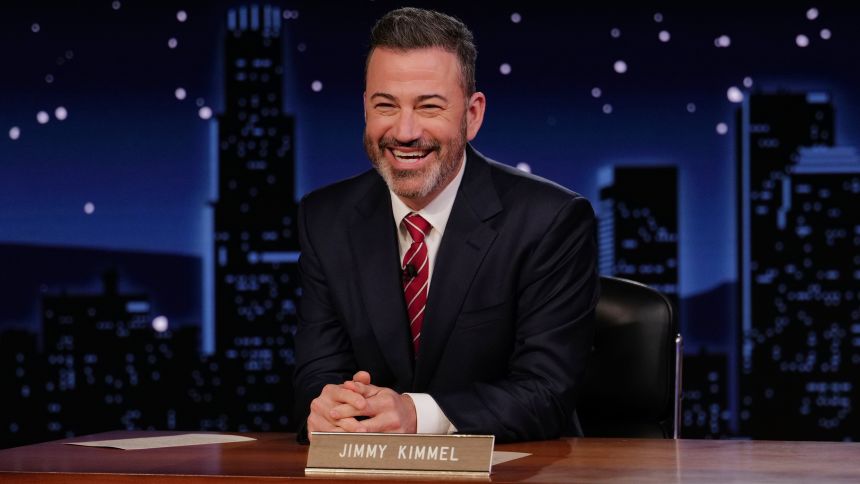When Disney owned ABC decided to suspend Jimmy Kimmel Live! it triggered more than just the temporary silence of a late night talk show host. It set off a firestorm that raises deep questions about censorship free speech and corporate responsibility in the United States.
Across social media thousands of users expressed anger at what they view as a corporate cave in to political pressure. Hashtags calling for boycotts of Disney+ Hulu and other Disney owned platforms began trending. Reports indicate that searches for “cancel Disney Plus” surged to their highest point in over a year and Disney’s own cancellation portals were briefly overwhelmed. Whether these protests translate into long term subscription losses remains unclear but the public sentiment is unmistakable many Americans believe a line has been crossed.
Personal Decision: I Unsubscribed
I unsubscribed the minute I was able to confirm this was true and even if Jimmy comes back I will not subscribe back. I will not say never because given different circumstances like under a completely different government administration I may consider it but for now HECK NO!
The suspension of Kimmel is not just a business decision about a television personality it is about how corporations handle voices that challenge provoke or criticize. When media companies pull the plug under pressure they send the message that speech is conditional that commentary satire and critique are allowed only so long as they do not offend the powerful.
Free speech and press freedom are cornerstones of democracy. Censoring a late night comedian may not resemble the heavy handed crackdowns seen in authoritarian regimes but the principle is the same limiting expression narrows the public’s space for dissent. It chills creativity discourages honest critique and undermines the very idea of an independent press.
On the September 15 2025 episode of Jimmy Kimmel Live! Kimmel said “The MAGA gang desperately trying to characterize this kid who murdered Charlie Kirk as anything other than one of them and doing everything they can to score political points from it.” This remark led to ABC pulling his show off air indefinitely. At the time the investigation into the shooter Tyler Robinson was ongoing and authorities had not officially confirmed his political leanings.
In the days after the suspension a wave of online backlash did not stop at cancellations and boycotts. Numerous users on social platforms publicly shared personal information about people who expressed views they disagreed with and urged employers to fire those who posted comments about Charlie Kirk in a way they did not approve. Media reporting and user posts suggest doxxing and calls for firings have appeared in some corners of the internet. These tactics raise serious concerns about online mob behavior and the erosion of norms around privacy and proportional response.
No one has matched the level of inflammatory rhetoric that came from Charlie Kirk. The record of his public statements is widely available online and not fabricated by critics. If Kirk wanted to be remembered in a more positive light, he should have conducted himself differently during his lifetime. Even former president Donald Trump, when asked by a reporter, “My condolences on the loss of your friend Charlie Kirk. How are you holding up?” gave little weight to Kirk’s existence. Trump replied, “I think very good. And by the way, you see all the trucks? They just started construction of the new ballroom for the White House.” Instead of addressing Kirk’s death, he shifted to boasting about a ballroom project in the White House, a claim that was irrelevant to the question and seen as misleading.
Fox News host Brian Kilmeade during a Fox & Friends discussion said of homeless mentally ill people “Or involuntary lethal injection. Or something. Just kill them.” That remark drew widespread backlash but Kilmeade has not been pulled off air and continues to have a job for now.
This discrepancy raises questions about selective enforcement of consequences. How close is this to Project 25 a concept where political censorship becomes normalized where “who says what” gets punished differently depending on alignment.
Disney now finds itself in a precarious position. On one side the company faces backlash from viewers who see the suspension as censorship and have responded with boycotts. On the other the company faces political actors who have made free press a battleground issue pressuring corporations to fall in line. By trying to satisfy both Disney risks alienating all.
Critics note the irony of a company built on storytelling silencing one of the most visible voices in late night media. As a global powerhouse in entertainment Disney must reckon with whether it will prioritize short term political appeasement or uphold the broader principles of free expression that fuel a vibrant press and creative culture.
The Kimmel episode underscores a troubling trend in the United States where corporate and political forces increasingly shape the boundaries of what can and cannot be said. While Disney’s official subscriber numbers have not yet shown a major collapse the symbolic damage is undeniable. When audiences feel their entertainers are muzzled trust in the platform diminishes.
Ultimately the fallout is bigger than Kimmel or Disney. It is a reminder that freedom of speech and press must be defended not just in courtrooms or legislatures but in boardrooms. The public will tolerate many corporate missteps but attempts to stifle voices often ignite something deeper a fight over the right to speak to challenge and to be heard.

